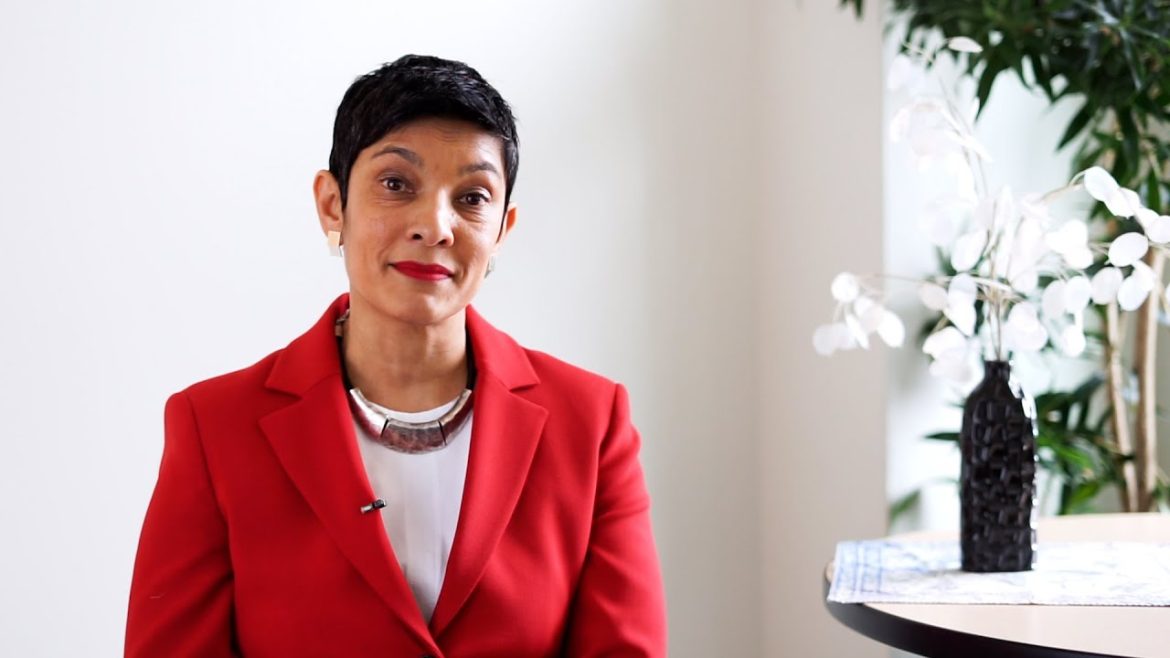For the first time in 30 years, Human Rights Watch has a new executive director, Tirana Hassan.
Within days of taking office, she turned her fire on Israel.
“This is a government that’s actually on a rampage against human rights domestically against its own people in Israel,” she said.
If one were to select a country whose government is on a rampage against human rights, Israel may not be the first that comes to mind.
There is China, responsible for the “detention of more than a million Uyghurs and other Turkic Muslims — who are subject to torture, political indoctrination, and forced labor,” as Hassan wrote in January.
There is Russia, the perpetrator of “torture, summary executions, sexual violence, enforced disappearances, and looting of cultural property” in Ukraine per Human Rights Watch.
There is also Iran, whose clerical regime has been killing hundreds of protesters marching for freedom and women’s rights.
North Korea has not made any similar headlines lately, but it remains the same Stalinist dystopia that engages in “arbitrary imprisonment, torture, collective punishment, enforced disappearance, executions, and forced labor in detention and prison camps.”
(Source? Human Rights Watch.)
Those may be the leading candidates, but one could also make a persuasive case that Syria, Myanmar and Venezuela are contenders for the crown.
(According to whom? Yes, Human Rights Watch.)
Despite this wealth of viable options, Hassan chose to point a finger at Israel.
Notably, she highlighted the Netanyahu government’s treatment of Israelis, not of Palestinians.
For months, hundreds of thousands of Israelis (in a country of just 9 million) have been marching in opposition to proposed judicial reforms that would shift considerable power from the courts to the cabinet.
How have those protesters fared in comparison to their counterparts in Tehran and other capitals?
Quite well, one might say.
There have been a handful of rough incidents, but the main role of the police has been to protect the demonstrators’ right to freedom of expression.
While obviously controversial, the judicial reforms themselves have been slowly moving through the Knesset — Israel’s parliament — according to established procedures.
To put it mildly, one must put Israel under a very powerful microscope to search for the alleged rampage against human rights that Hassan described.
Some may recall an eruption of violence on Jan. 27, when a Palestinian named Khairi Alqam gunned down seven victims, including a 14-year-old boy, outside a synagogue in the Neve Yaakov neighborhood of eastern Jerusalem.
Alqam shot at police who arrived at the scene, who killed him in the ensuing struggle.
Palestinian Authority President Mahmoud Abbas refused to condemn the attack.
Meanwhile, Palestinians across East Jerusalem, the West Bank and Gaza celebrated the assault.
Israel also did something controversial in response to the attack: It planned to demolish the home where Alqam lived with his family as punishment for his actions.
That is when Human Rights Watch decided to weigh in on the matter.
After the shooting itself, HRW issued no statement.
The next edition of its daily newsletter did not mention the attack — it focused instead on El Salvador, Cameroon and police brutality in the United States.
Human Rights Watch has a fairly active Twitter account, but did not mention the Neve Yaakov shooting either.
Same for HRW’s director for Israeli and Palestinian affairs, who promoted his upcoming lecture at Dartmouth but did not mention the shooting.
One area where Human Rights Watch has been active regarding Israel is its campaign to protect critics of the Jewish state from accusations of anti-Semitism.
Last week, HRW co-signed an open letter to the Secretary General of the United Nations, calling on him to reject the working definition of anti-Semitism by the International Holocaust Remembrance Association (IHRA), which has won the support of 39 countries including the United States and most of Europe.
In particular, the open letter objected to the IHRA contention that one form of anti-Semitism is “applying double standards by requiring of [Israel] a behavior not expected or demanded of any other democratic nation.”
One can see why Human Rights Watch perceived this benchmark as one that may put it on the wrong side of the anti-Semitism debate.
The letter suggested to the secretary general that he consider an alternate definition, according to which “paying disproportionate attention to Israel and treating Israel differently than other countries is not prima facie proof of anti-Semitism.”
(Try substituting “Jews” for “Israel” and “people” for “countries” and see how that sounds.)
The tragedy of Human Rights Watch is that there is a desperate need for objective reporting on human rights across the globe.
n many of the 90 countries where it operates, the organization lives up to that standard.
Still in her first month on the job, Hassan could steer the organization in a better direction if she is willing to take justified criticism to heart — not that it seems likely.
David Adesnik is a senior fellow and director of research at the Foundation for Defense of Democracies.


